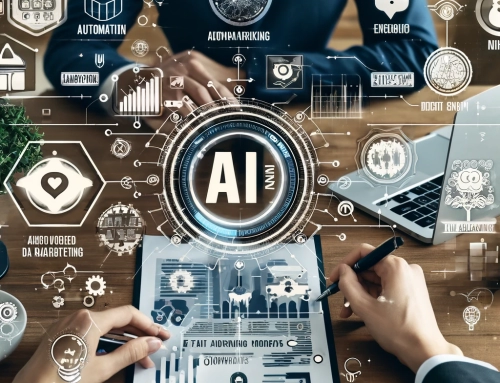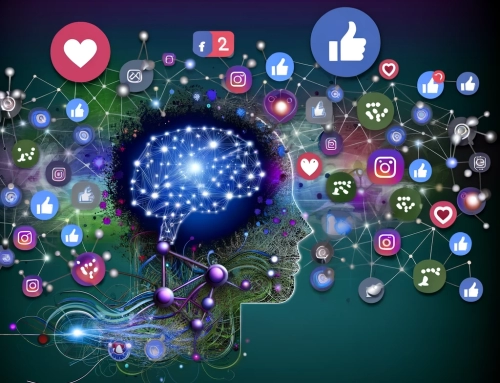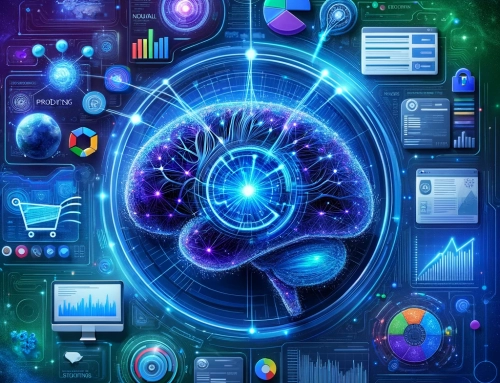In the dynamic and competitive world of digital marketing, staying ahead of the curve is no longer just about being innovative or creative. Today, it’s about being predictive. Predictive analysis, powered by Artificial Intelligence (AI), is revolutionizing the way marketers strategize, enabling them to make data-driven decisions, optimize their campaigns, and achieve better results. This article delves deep into the role of AI in predictive analysis and how it contributes to crafting effective digital marketing strategies.
The Power of Predictive Analysis in Digital Marketing
Predictive analysis involves using historical data to forecast future events. In the context of digital marketing, it can predict potential customer behavior, market trends, and campaign outcomes. These insights allow marketers to anticipate what their customers want before they even know it themselves, leading to more targeted and effective marketing strategies.
Predictive analysis can help businesses answer critical questions such as: Who are our most valuable customers? What products or services are they likely to buy? When are they likely to make a purchase? Answering these questions can help businesses tailor their marketing strategies to meet customer needs, ultimately driving engagement and conversions.
The Role of AI in Predictive Analysis
AI takes predictive analysis to the next level. By leveraging machine learning algorithms, AI can analyze vast amounts of data much faster and more accurately than humans. It can identify patterns and trends that might be overlooked in manual analysis. Here’s how AI contributes to predictive analysis in digital marketing:
1. **Customer Segmentation:** AI can analyze customer data to identify distinct groups based on various factors like demographics, buying behavior, and preferences. This segmentation allows for more personalized marketing, improving engagement and conversion rates.
2. **Predicting Customer Behavior:** AI can predict future customer behavior based on past actions. This could include predicting which customers are likely to make a purchase, unsubscribe from a newsletter, or become repeat customers. These predictions enable marketers to take proactive steps to engage customers or mitigate potential issues.
3. **Forecasting Sales:** AI can analyze historical sales data and market trends to predict future sales. This can help businesses plan their inventory, budget, and marketing efforts more effectively.
4. **Optimizing Marketing Campaigns:** AI can predict the likely success of different marketing strategies and suggest optimizations. This allows marketers to allocate their resources more effectively, focusing on strategies that are likely to yield the best results.
5. **Churn Prediction:** AI can identify customers who are likely to stop doing business with a company. This allows businesses to implement strategies to retain these customers, improving customer loyalty and reducing churn.
Practical Applications of AI in Predictive Analysis
To understand the pragmatic aspect of AI in predictive analysis, let’s look at some real-world applications:
1. **Personalized Recommendations:** Online retailers like Amazon use AI to analyze customer behavior and predict what products a customer might be interested in. This leads to personalized product recommendations, which can significantly increase sales.
2. **Predictive Customer Service:** Companies can use AI to predict customer issues before they arise. For example, a software company might use AI to predict when a customer might need technical support and proactively reach out to them.
3. **Demand Forecasting:** Businesses can use AI to predict demand for their products or services. This can help them manage their inventory more effectively and avoid overstocking or understocking.
4. **Ad Optimization:** Marketers can use AI to predict which ads will perform best. This can help them optimize their ad spend and get the most out of their marketing budget.
The Future of AI in Predictive Analysis
As AI technology continues to evolve, its role in predictive analysis and digital marketing is set to become even more significant. Future advancements in AI could lead to more accurate predictions, better customer segmentation, and more effective marketing strategies. For instance, AI could be used to predict emerging market trends, allowing businesses to stay ahead of the curve. It could also be used to create more personalized marketing campaigns, delivering the right message to the right person at the right time.
The role of AI in predictive analysis is transformative for digital marketing. It allows businesses to understand their customers better, make data-driven decisions, and optimize their marketing strategies. By leveraging AI, businesses can stay ahead of the curve, anticipate market trends, and deliver what their customers want before they even know they want it.
In the era of digital marketing, staying ahead means staying predictive, and AI is the key to unlocking this potential. Embrace the power of AI in your digital marketing strategies and witness the transformative impact on your business growth. As we look to the future, the integration of AI and predictive analysis in digital marketing is not just an option, but a necessity for businesses aiming to thrive in the digital age. The pragmatic applications of AI in predictive analysis are already making a significant impact, and this is only set to increase as the technology continues to evolve.









